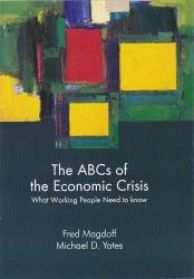In Defense of History
INR 395.00
In stock
SKU
pro_851
The world is increasingly populated not by cheerful robots but by some very angry human beings. As things stand, there are very few intellectual resources available to understand that anger, and hardly any political ones (at least on the left) to organize it. Today's postmodernism, for all its apparently defeatist pessimism, is still rooted in the 'Golden Age of Capitalism'. It's time to leave that legacy behind and face today's realities.
– from Ellen Meiksins Wood's Introduction






